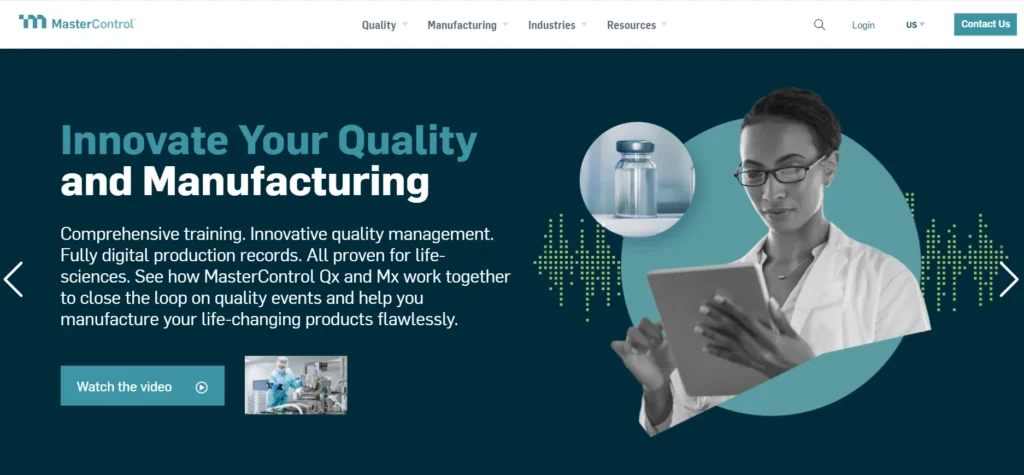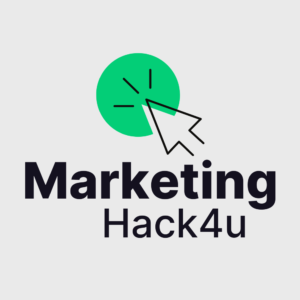The pharmaceutical industry operates under strict regulatory standards to ensure product safety, efficacy, and quality. To meet these rigorous demands, companies must adopt robust compliance management solutions that streamline operations and ensure adherence to global regulations like FDA, GMP, and ISO.
Pharma compliance management solutions help monitor quality processes, manage documentation, track audits, and maintain transparency throughout the supply chain.
These tools reduce the risk of non-compliance, support better decision-making, and enhance overall operational efficiency. Choosing the right solution is vital for pharmaceutical firms to stay compliant, avoid penalties, and build trust in an increasingly competitive and regulated environment.
In this blog, we will take a look at 10 Best Pharma Compliance Management Solutions.
What is Compliance Management Software?
Compliance Management Software is a digital solution designed to help organisations adhere to regulatory, legal, and industry-specific requirements. It streamlines the process of identifying, monitoring, and managing compliance obligations, ensuring that businesses stay aligned with laws such as FDA, HIPAA, GDPR, and ISO standards.
This software typically includes features like document control, audit management, risk assessment, training tracking, and corrective action processes. By automating these functions, it reduces human error, improves operational efficiency, and minimises the risk of penalties or legal action.
Especially in highly regulated industries like pharmaceuticals and healthcare, compliance software plays a crucial role in maintaining product quality, safety standards, and data integrity, while enabling companies to adapt quickly to changing regulations and audit requirements.
Key Features To Look For In Compliance Management Software
- Document Management: Centralised control of policies, SOPs, and regulatory documents.
- Audit Management: Tools for scheduling, conducting, and tracking internal and external audits.
- Risk Management: Identifies, evaluates, and mitigates compliance-related risks.
- Corrective and Preventive Actions (CAPA): Tracks issues and ensures timely resolution.
- Training Management: Monitors employee training, certifications, and compliance awareness.
- Real-Time Reporting & Dashboards: Provides insights into compliance status and key metrics.
- Regulatory Change Tracking: Alerts and adapts systems to new or updated regulations.
- Workflow Automation: Streamlines routine compliance tasks and approvals.
- Integration Capabilities: Connects seamlessly with other enterprise systems (ERP, QMS).
- User Access Control: Ensures secure, role-based access to sensitive compliance data.
List of the Best Pharma Compliance Management Solutions
1. MediSpend

MediSpend provides Global Compliance Suite to pharmaceuticals and biotech companies alongside medical device manufacturers through a tailored solution. Organisations use this platform to regulate HCP interactions while managing worldwide transparency requirements and expenditure records according to national and international legislation.
The platform enables users to meet requirements from Sunshine Act and EFPIA alongside other global disclosure regulations. The cloud-based features of MediSpend reduce complexity in compliance operations while offering automated tools alongside user-friendly interfaces as well as analytical capabilities.
MediSpend provides global life sciences organisations with trusted regulatory compliance management through its accurate systems which reduce risks and enhance visibility in their compliance reporting processes.
Features:
- Engagement Manager: Facilitates planning, engaging, and compensating healthcare professionals and organisations (HCP/Os) with embedded compliance rules.
- Transparency Solution: Aggregates, validates, and reports transfers of value to comply with global transparency laws.
- Funding Management Solution: Tracks grants and funding requests from submission through post-event closeout.
- Insights: Provides a centralised business intelligence platform for analysing compliance data.
- Advisory Services: Offers expert guidance on global healthcare compliance policies and procedures.
Cons:
- The platform’s comprehensive nature may present a steep learning curve for new users.
- Customisation options might be limited for organisations with unique compliance workflows.
2. Redica Systems

Redica Systems provides pharmaceutical organisations with a data-driven platform that allows proactive detection and remediation of regulatory compliance & quality risks.
The platform retrieves information from FDA alongside EMA and global health agencies through data collection and analysis procedures to deliver current inspection patterns and enforcement activities together with regulatory information. Users can utilise the AI-powered analytics platform’s engine to benchmark against peer companies in their industry and detect quality issues that pose risks of becoming major issues.
Redica Systems helps implement GMP, GCP and quality system requirements which lets QA and RA professionals make better decisions to decrease compliance risks. The platform delivers advanced visibility and enhanced control during each stage of the quality lifecycle.
Features:
- Regulatory Surveillance: Provides real-time updates on inspection trends and enforcement actions from global health agencies.
- Benchmarking Tools: Enables comparison against industry peers to anticipate potential quality issues.
- Quality and Compliance Insights: Offers data-driven insights to proactively manage regulatory risks.
Cons:
- The platform may require significant training to fully leverage its advanced analytics capabilities.
- Primarily focused on data analysis, it may not offer direct corrective and preventive action (CAPA) management tools.
3. Scilife

Scilife stands as an innovative platform that helps pharmaceutical and life sciences enterprises enhance their quality management activities and compliance practices. Through its Smart Quality Platform users can merge document control functions together with training modules CAPA management and audits alongside risk management tools under one platform.
Scilife distinguishes itself through its mission to convert compliance obligations into strategic business benefits. Scilife fosters quality-oriented environments through easy-to-use software features plus remote access in addition to real-time teamwork tools.
Scilife helps organisations maintain inspection-readiness through GxP compliance combined with ISO standard support. User organizations benefit from its modular system because it can scale to meet their changing needs as their operations grow and regulations evolve.
Features:
- Smart Quality Platform: Integrates document control, training, CAPA, audits, and risk management into a unified system.
- Quality Culture Promotion: Emphasizes transforming compliance from a regulatory burden into a strategic advantage.
- Modular Structure: Offers scalability to adapt as companies grow and regulatory requirements evolve.
Cons:
- Initial setup and customisation may be time-consuming.
- Some users may find the interface less intuitive compared to other platforms.
4. Celegence

Celegence delivers specialised regulatory affairs expertise for pharmaceuticals and medical devices through its services and technological solutions portfolio.
A worldwide group of experts at Celegence enables organisations to manage intricate regulatory situations while ensuring proper drug submission preparation and regulatory strategy development as well as label compliance. Their tech-enabled services streamline the entire compliance lifecycle, from data gathering and documentation to submission and post-market surveillance.
Through their proprietary platforms Celegence brings life sciences companies operational efficiency and regulatory compliance for faster product market entry. The wide range of regional support offers Celegence its status as the preferred supplier for businesses that require worldwide compliance direction and operational excellence.
Features:
- Regulatory Publishing & Submissions: Assists with global submission challenges, ensuring compliance with regional regulations.
- IDMP & Compliance Consulting: Provides readiness assessments and support for IDMP, XEVMPD, and UDI compliance.
- Medical Writing: Offers expertise across various product types for multiple regulatory documents and application types.
- Post-Market Surveillance: Designs and implements surveillance processes to increase compliance and reduce risks.
- Regulatory Affairs Consultancy: Provides tailored strategic and procedural support to enable pharmaceutical companies to become launch-ready.
Cons:
- Services may be more consultancy-focused rather than offering a standalone software solution.
- May not provide as much automation as some software-centric compliance solutions.
5. MasterControl

MasterControl offers quality management software (QMS) solutions that specialise in serving highly regulated sectors like pharmaceuticals. The complete QMS system from MasterControl supports all process areas including document management alongside training and CAPA along with audits as well as supplier control and product lifecycle tracking.
MasterControl’s solutions meet regulatory requirements from FDA along with ISO, EMA and multiple international standards. MasterControl’s platform automates everything and provides real-time quality process tracking through its centralised control system.
The platform enables ready audits and decreases compliance risks together with faster time-to-market. By using deployable frameworks and built-in validation features MasterControl enables pharmaceutical organisations to execute complex quality and compliance functions effectively and confidently.
Features:
- Quality Management System (QMS): Automates critical quality processes like document, training, quality event, supplier, and audit management in a single end-to-end solution.
- Cloud-Based Platform: Fully digitises and consolidates formerly paper-based data and documentation.
- Regulatory Compliance Automation: Removes the compliance burden and improves product quality through automation.
- Connected QMS Platform: Integrates quality data across the entire product lifecycle.
Cons:
- Comprehensive features may come with a higher cost compared to other solutions.
- Implementation can be complex and may require dedicated resources.
6. Spotline

Spotline focuses on pharmaceutical digital transformation through systems which incorporate regulatory compliance alongside automated modules and artificial intelligence solutions. The platform provides solutions for process optimisation and regulatory file management together with data preservation from product development to market entry.
Through real-time analytics Spotline uses predictive models to detect potential non-compliance situations before they develop. The system enables connections with major ERP and QMS platforms for smooth inter-departmental data flow.
Spotline achieves higher productivity levels as well as decreases compliance risks through automated repetitive tasks and enhanced data visibility capabilities. The company builds future-proof solutions through collaborative innovation efforts alongside its clients and partners that fulfill industry requirements and best practices.
Features:
- Digital Transformation: Integrates compliance, automation, and Al-driven technologies to streamline workflows.
- Regulatory Documentation Management: Maintains data integrity throughout the product life cycle.
- Predictive Analytics: Offers real-time insights to prevent non-compliance events before they occur.
Cons:
- May require integration with existing systems, which can be complex.
- Focus on Al and automation may not suit organisations preferring manual oversight.
7. Kallik

Kallik offers a powerful SaaS platform for labeling and artwork management tailored to pharmaceutical and life sciences companies. It addresses compliance requirements related to product labeling, packaging artwork, and regulatory submission standards across global markets.
With its end-to-end digital solution, Kallik ensures consistency, accuracy, and traceability of all labeling assets. The platform is equipped with AI tools that streamline workflows, reduce human error, and improve audit readiness.
Kallik supports compliance with FDA, EU MDR, and global labeling regulations. It helps companies accelerate product launches while maintaining brand integrity and regulatory accuracy, making it a leader in labeling compliance.
Features:
- End-to-End Labeling and Artwork Management: Provides a single source of truth for all assets, minimising reworks and reducing human error.
- Cloud-Based Solution: Enables scalable and standardised global labeling operations accessible worldwide.
- Automated Artwork Creation: Utilises intelligent pre-approved templates to automatically generate artworks, reducing manual input and errors.
- Asset & Phrase Management: Maintains a secure, up-to-date, and approved set of digital assets in one auditable system.
- Regulatory Compliance: Ensures adherence to global standards like FDA, EU MDR, and ISO.
- Traceability & Visibility: Full audit trail and approval management throughout the artwork and labeling process.
Cons:
- Focused primarily on labeling; lacks broader compliance features like CAPA or QMS.
- Implementation can be resource-intensive for companies with legacy labeling systems.
8. ComplyScore

ComplyScore offers an end-to-end third-party risk management platform that helps pharmaceutical companies manage vendor compliance and reduce risk. Its platform automates vendor lifecycle management, from onboarding and risk assessment to monitoring and offboarding.
With tools for contract management, audit tracking, and real-time risk analytics, ComplyScore ensures that vendor relationships adhere to internal policies and regulatory standards. It also supports compliance with FDA, GDPR, HIPAA, and other frameworks relevant to pharma operations.
The solution empowers organisations to proactively manage compliance gaps, improve accountability, and maintain oversight across all third-party engagements, contributing to a more secure and compliant supply chain.
Features:
- Third-Party Risk Management: Automates the entire vendor lifecycle, from onboarding to monitoring.
- Audit Management: Helps manage internal and external audits for vendor compliance.
- Risk Analytics Engine: Offers real-time dashboards and insights into vendor compliance risks.
- Compliance Automation: Supports HIPAA, GDPR, FCPA, and FDA regulations.
- Policy & Document Management: Centralises compliance policies and tracks acknowledgments.
- Incident Management: Logs, manages, and resolves vendor-related incidents efficiently.
Cons:
- Strong vendor focus may not meet internal quality management needs.
- Interface and dashboard complexity can lead to a learning curve for new users.
9. Datapharm

Datapharm provides digital information solutions for the pharmaceutical industry, enabling effective management of medicines information and regulatory content.
Known for platforms like emc (electronic medicines compendium), Datapharm ensures up-to-date, accurate product information reaches healthcare professionals and patients. It supports pharma companies with compliance for product labeling, packaging, and marketing authorization, ensuring alignment with MHRA and EMA guidelines.
Datapharm’s tools simplify the creation, validation, and publication of regulatory documents. With its focus on digital transformation and evidence-based insights, the company helps life sciences firms stay compliant, transparent, and trusted across the healthcare ecosystem in both local and global markets.
Features:
- eMC (electronic Medicines Compendium): Publishes trusted medicines information for healthcare professionals and the public.
- Regulatory Publishing: Supports document lifecycle for pharmaceutical regulatory content.
- SmPC and PIL Compliance: Ensures documents meet strict formatting and validation requirements.
- Digital Asset Management: Organizes product information, packaging, and labeling data.
- Regulatory Change Tracking: Alerts and updates to help stay aligned with policy changes.
- Market Authorisation Support: Assists companies with submissions and approvals across markets.
Cons:
- Primarily focuses on content publication and labeling, not full-scale compliance management.
- Integration with other systems may be required for end-to-end regulatory tracking.
10. LectureLinx

LectureLinx provides a robust data ecosystem that supports regulatory compliance across the life sciences industry. Its platform centralises operational data related to healthcare provider engagements, transparency reporting, and event management.
By integrating compliance workflows with data governance tools, LectureLinx empowers organisations to make informed decisions and reduce regulatory risk. The system supports global compliance with Sunshine Act, EFPIA, and GDPR requirements.
LectureLinx’s user-friendly interface and automation features streamline processes, enhance reporting accuracy, and improve audit readiness. The solution is particularly valuable for commercial and medical affairs teams aiming to maintain ethical and compliant relationships with external stakeholders.
Features:
- Data Ecosystem: Centralised platform for HCP engagement and transparency reporting.
- Compliance Workflow Automation: Integrates compliance rules with business processes.
- Sunshine Act Compliance: Tracks and reports transfers of value in the U.S.
- GDPR & EFPIA Support: Ensures compliance with European and global privacy regulations.
- Field Reporting Tools: Collects real-time event and expense data from reps and contractors.
- Data Governance: Structured controls over access and usage of compliance data.
Cons:
- Best suited for companies with high volumes of HCP interactions-may be overkill for smaller firms.
- Limited focus on non-commercial compliance needs such as manufacturing or laboratory QA/QC.
Ending Thoughts
In conclusion, pharma compliance management solutions are an essential tool for organizations operating in regulated industries, particularly pharmaceuticals, healthcare, and manufacturing. It not only simplifies adherence to complex legal and regulatory frameworks but also enhances operational efficiency and reduces the risk of non-compliance penalties. By automating critical processes like document control, audits, training, and risk management, the software ensures transparency, accountability, and consistent quality standards.
Choosing the right solution with robust features-such as real-time reporting, CAPA tracking, and integration capabilities-can significantly strengthen a company’s compliance posture. In an evolving regulatory environment, investing in a reliable compliance management system is not just a safeguard but a strategic move toward long-term growth, trust, and competitive advantage.
FAQs
Why is compliance important in the pharmaceutical industry?
Compliance ensures product safety, regulatory approval, and prevents legal penalties while maintaining trust with consumers and health authorities.
What features should I look for in a pharma compliance tool?
Key features include document control, audit tracking, CAPA management, training modules, electronic signatures, and regulatory reporting.
Are these solutions suitable for small pharma companies?
Yes, many compliance tools offer scalable features tailored to small, mid-sized, and large pharmaceutical enterprises.
Can these tools integrate with other systems?
Many pharma compliance platforms integrate with ERP, LIMS, and QMS systems for streamlined operations and unified data access.

